
Bellis is a genus of flowering plants in the family Asteraceae.
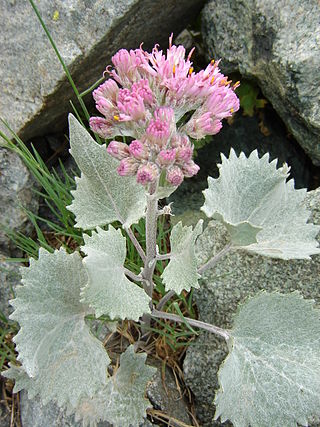
Adenostyles is a genus of flowering plants in the sunflower family Asteraceae, and of the tribe Senecioneae. It was described as a genus in 1816. Adenostyles occur in the temperate climates of the northern hemisphere, mainly in Europe and Asia Minor.

Ptilostemon is a genus of plants in the tribe Cardueae within the family Asteraceae.
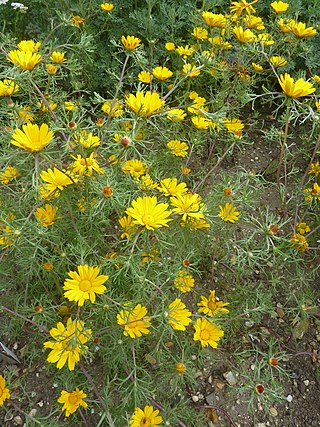
Cladanthus is a genus of plants in the sunflower family, native to the Mediterranean region.
Egletes is a genus of flowering plants in the family Asteraceae. It is native to South America, Mesoamerica, and the West Indies, with the range of one species barely crossing the US border into the extreme southern part of Texas.
Lasiopogon is a genus of flowering plants in the family Asteraceae native to Southern Africa.

Garuleum is a genus of flowering plants in the sunflower family, native to southern Africa. Garuleum is one of eight genera of Calenduleae.
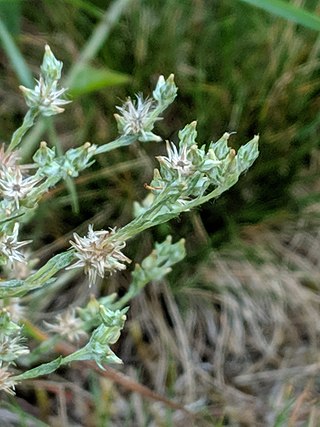
Logfia is a genus of herbaceous plants in the tribe Gnaphalieae of the family Asteraceae, known as cottonrose.
Cuniculotinus is a genus of flowering plants in the family Asteraceae.
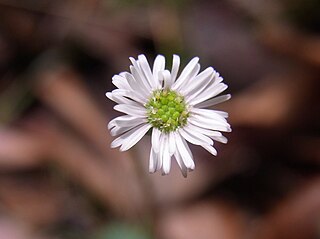
Lagenophora is a genus of flowering plants in the family Asteraceae. Species occur in South-east Asia, Australia, New Zealand, as well as Central and South America.
Elytropappus is a genus of flowering plants in the family Asteraceae, native to southern Africa.
Printzia is a genus of South African plants in the tribe Astereae within the family Asteraceae.

Alfredia is a genus of flowering plants in the family Asteraceae described as a genus in 1816.
Trilisa is a genus of flowering plants in the tribe Eupatorieae within the family Asteraceae.

Tyrimnus is a genus of Mediterranean plants in the tribe Cardueae within the family Asteraceae.
Dugaldia is a genus of Mesoamerican flowering plants in the sunflower family.
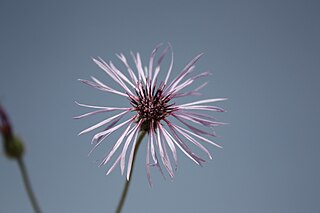
Volutaria is a genus of flowering plants in the family Asteraceae. They range from Iberia to the Near East and East Africa, but are most diverse in the Maghreb.
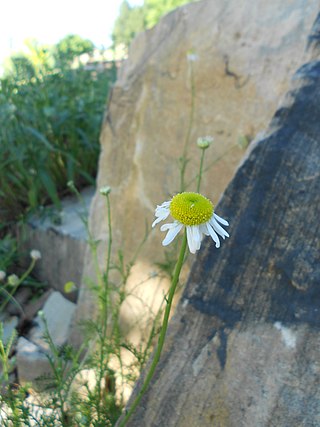
Lasiospermum (cocoonhead) is a genus of flowering plants in the daisy family.

Lucilia is a genus of South American flowering plants in the tribe Gnaphalieae within the family Asteraceae.

The Patagonian grasslands (NT0804) is an ecoregion in the south of Argentina. The grasslands are home to diverse fauna, including several rare or endemic species of birds. There are few protected areas. The grasslands are threatened by overgrazing by sheep, which supply high-quality merino wool. Efforts are being made to develop sustainable grazing practices to avoid desertification.












